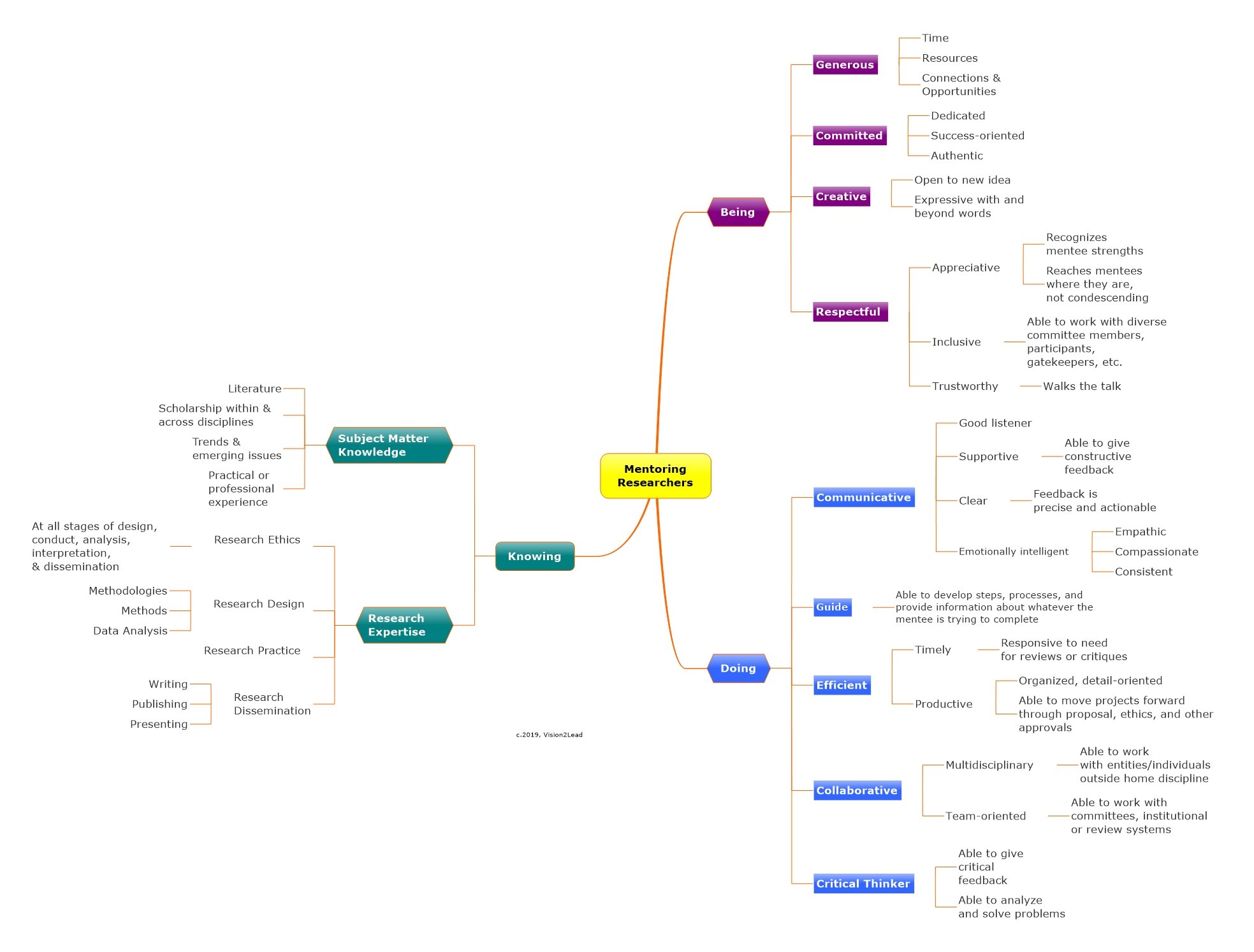Q & A about mentors and mentoring
Mentors can help us grow as scholars, and as humans!
In academic life the term mentor is sometimes used to describe the role of a dissertation supervisor or thesis adviser. Other times we use the term more informally, to describe someone who takes us under their proverbial wing, who pushes and encourages us, or helps us pick up the pieces when disappointments inevitably come along. But as with any kind of relationship, mentoring is complex. Many questions about how to start and maximize these relationships were posed during the Sage webinar on Mentorship - scroll down for responses.
If you missed it, view the recording here:
Dr. Janet Salmons, Manager for the Sage Research Methods Community and one of the panelists, responds to some of the questions that were posted during the webinar:
Q. How is a balanced relationship between mentor and mentee defined?
JS. As mentioned in the webinar, some mentorships are institutional or academic roles, such as a thesis or dissertation supervisor or a guide for a new hire. In those situations the institution should have defined key expectations such as:
Roles
Relationship and boundaries
Goals
Expectations
Mode(s) of interaction
Time commitment and completion
If are beginning such a mentorship, look at the definitions provided by the institution and then discuss them with your mentor from the outset.
By contrast, in an informal relationship the mentor and mentee define expectations. Be clear about your hopes and needs. These might be short-term, through a particular time period or project, or long-term, even life-long. Keep in mind that someone who is volunteering as a mentor may only be willing to work with you on a limited basis.
Don’t confuse a mentor with an editor or consultant; if you are looking for someone who is going to read and give detailed feedback on multiple drafts of your writing, that would most likely be a paid editor.
Q. Is there an ethical code for mentors?
JS. My first question would be about the setting. Within a university or agency faculty members and staff would be expected to follow the institution’s code. In informal situations, mentors should follow the code of ethics for their profession. If there are specific ethical issues important to you, such as confidentiality, not posting inside information on social media, etc., discuss them at the outset of the mentorship.
Q. I have experienced the great, good and down right ugly formal academic mentorship experience as a mentee (student and scholar). What insights can you share in do's and don'ts in mentoring to achieve transformational rather than transactional experiences?
JS. It is such an individual process, and like love or friendship there is a bit of magic involved. When you meet someone new, can you discern right away they will be your BFF or spouse? No, that intimacy and caring comes with time and familiarity. The steps above allow you to discuss your needs and interests, so you can certainly say “I am looking for someone who is open to ______.” Or, especially in a formal academic role, you can talk with others who have worked with the potential mentor. Did they extend themselves or just do the minimum required?
Q. What is the role of emotional intelligence in being a good mentor?
JS. This question is a good follow-up to the previous question. Emotional-intelligent mentors are generous, committed, creative, respectful, empathetic, and compassionate. As noted in this post, the best mentors balance knowing, doing, and being. Here is the full, expanded map of mentoring characteristics.
Of course, we are only human and not every mentor can or should have every possible attribute! But if you are an aspiring mentor, I hope this will give you some thoughts about where to develop your skills.
Q. What roles do mentors have in shaping research competence among mentees?
JS. Shaping research competence could be part of the mentoring relationship, depending on the agreements and expectations laid out in the initial agreement. If I am mentoring you on a dissertation or research project, then yes, I would try to support your development as a researcher.
Q. I was interested in knowing about how to find potential supervisors specially abroad, and, what does a PhD supervisor look for in a potential candidate specially from international talent pool?
JS. I suggest that you look at AuthorAid, an excellent organization that facilitates mentoring relationships internationally. For the second question, it depends. As a PhD supervisor I looked for the same qualities in international students as ones from my own country: were they committed, willing to work, willing to learn, able to accept guidance and feedback? Would they get steps done in a timely fashion, come to meetings prepared? Did they enter the relationship with an attitude of respect?









Answers to questions about mentoring posed during a webinar (and the recording too!)